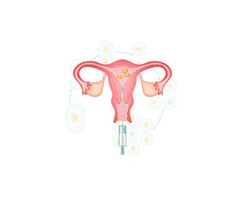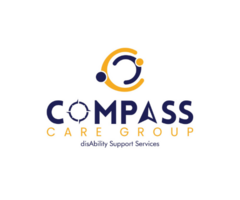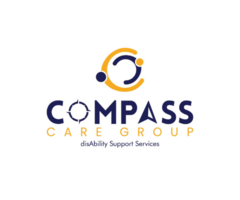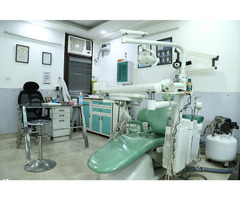Proton pump inhibitors (PPIs) are one of the maximum normally prescribed medications, basically because of their efficacy and their favorable safety profile. However, it has been estimated that between 25% and 70% of these prescriptions do no longer have an appropriate indication. The duration of PPI use also frequently extends beyond advocated tips. More than 15 million Americans used prescription PPIs in 2013, costing more than $10 billion. Specifically, in patients with kidney disease or sickness, a small look at advised a high consumption of AST (acid-suppressing remedy, on the whole PPIs) in sufferers on dialysis (compared to other persistent diseases) and the usage of AST had, in the majority of instances, no adequate indication. DOPPS records showed a surprisingly steady typical prescription fee of 36% to 38%, suggesting that prescription charges on this population are several instances extra than within the well-known populace. It is speculated that the overuse in patients with CKD may be associated with polypharmacy, co-morbidities, hypergastrinemia or the involvement of many physicians of their care.
In 1992, a sentinel case file identified the PPI omeprazole, as a likely purpose of acute interstitial nephritis (AIN) in an aged girl. Since that point, a developing frame of literature indicates that this magnificence of drugs can be linked to AKI, which may potentially lead to persistent harm or kidney failure.
A large nested case-control have a look at supported the affiliation between renal sickness and PPI exposure and located that patients with an incident renal ailment analysis had been almost twice as likely (OR 1. Seventy-two, p < zero.001) to have been uncovered to PPIs, supplying the first estimate of an impact size for this courting
A next Canadian populace-based totally cohort observation, involving nearly 600,000 sufferers, determined that folks who started out treatment with PPIs had a greater than twofold increase in costs of AKI (13. Forty-nine v. 5. Forty-six consistent with one thousand character-years; HR 2. Fifty-two) and AIN (0.32 versus 0. Eleven in step with 1000 individual-years; HR 3.00) in health center admission diagnoses. Similar results were discovered in an analysis stratified through character PPIs, substantiating the class effect. Indeed, greater than half (fifty nine%) of the sufferers in this study, on discharge from the medical institution, received every other prescription for a PPI within the resulting 100 days. Of these sufferers, 7.Five% were re-admitted to the clinic with AKI within the ensuing one hundred twenty days, constant with a causal role of PPIs in a few times, supplying the first estimate of the chance of drug rechallenge. This additionally highlights the lack of know-how among clinicians on the capability association between those drugs and renal sickness.
In a lately published article in JAMA searching at PPI use and the hazard of CKD in two big cohorts, (n=10,482 and n=248,751) PPI use turned associated with incident CKD in analysis adjusted for demographic, socioeconomic, and medical variables (HR, 1.50); and in analysis with PPI use modeled as a time-varying variable (adjusted HR 1.35). The association continued whilst baseline PPI customers had been as compared without delay with H2 receptor antagonist users (adjusted HR 1.39) and with propensity rating–matched non-customers (HR 1. Seventy-six). Twice-every day PPI dosing changed into associated with a better chance than as soon as-daily dosing, suggesting an organic gradient. Again, twice-every day PPI dosing became associated with a better danger of AKI than as soon as each day dosing.
Of hobby to the renal network, PPIs additionally reason hypomagnesemia, the cause which is probably related to magnesium wasting via TRPM-6 and TRPM-7 inhibition. This phenomenon is also visible in dialysis sufferers. One may also argue that every one of those is an observational study that can simplest show an association and for this reason cannot show causality (among PPI use and AKI/CKD or hypomagnesemia). Many of the studies used a sanatorium analysis code, which can be less touchy, and might underestimate the genuine occurrence and association. In addition, they depend upon administrative information and therefore had no get entry to laboratory indices of scientific or medicinal drug information that can have stimulated the danger of renal results, together with over-the-counter NSAID use (which would possibly perhaps be one of the maximum commonplace motives for PPI use).
In end, observational cohort studies represent one of the nice techniques to have a look at unfavorable outcomes of medicinal drugs used in actual-international settings. Given the hundreds of thousands of individuals who take PPIs each yr and the truth that greater than half of such prescriptions may not be clinically indicated, even a small absolute boom in danger of AKI/CKD outweighs any advantages that is probably derived from these drugs in many patients for whom they're prescribed. Although it must no longer deter clinicians from prescribing PPIs for patients with properly-described indications and periods, the modern evidence underscores the significance of ongoing efforts to curtail the indiscriminate use of those pills.
our nephrologist in Vijayawada will help you to recover from kidney diseases at SINU Hospital has top and best urologist available who can offer high quality urology treatments with advanced technology in Vijayawada





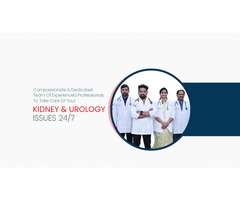
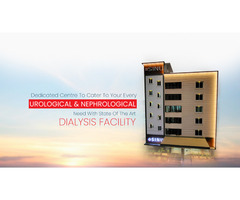
 Loading
Loading









